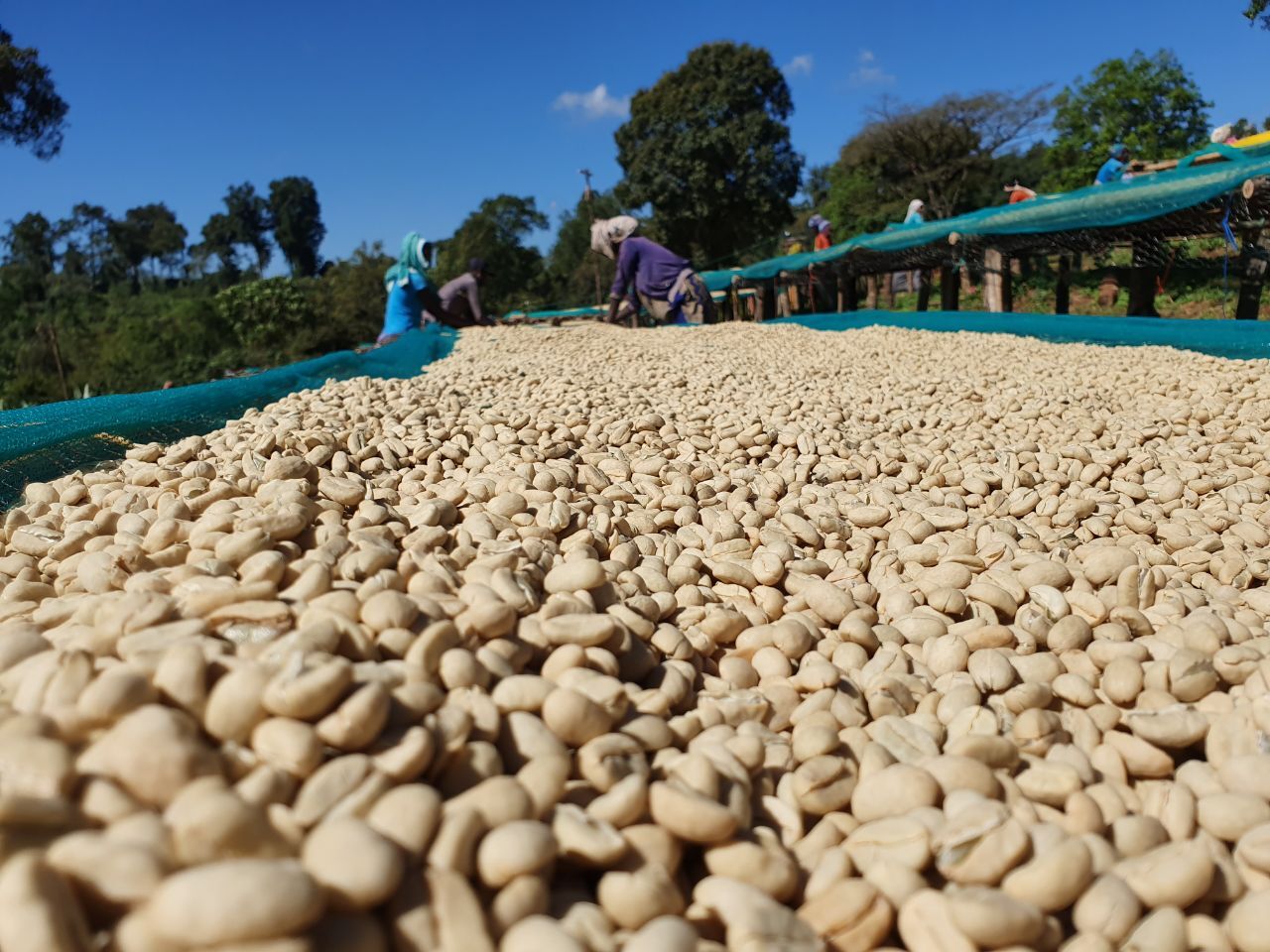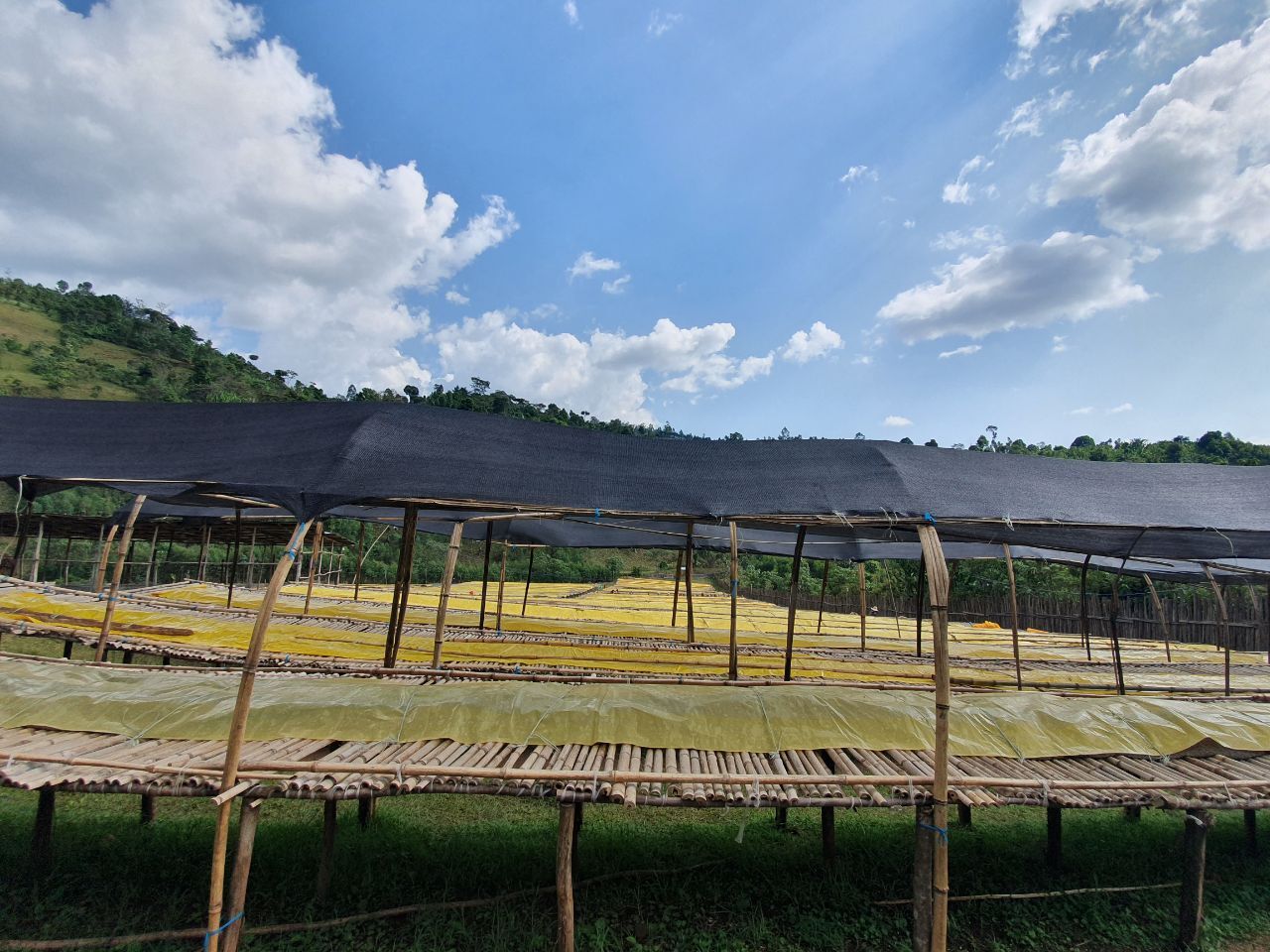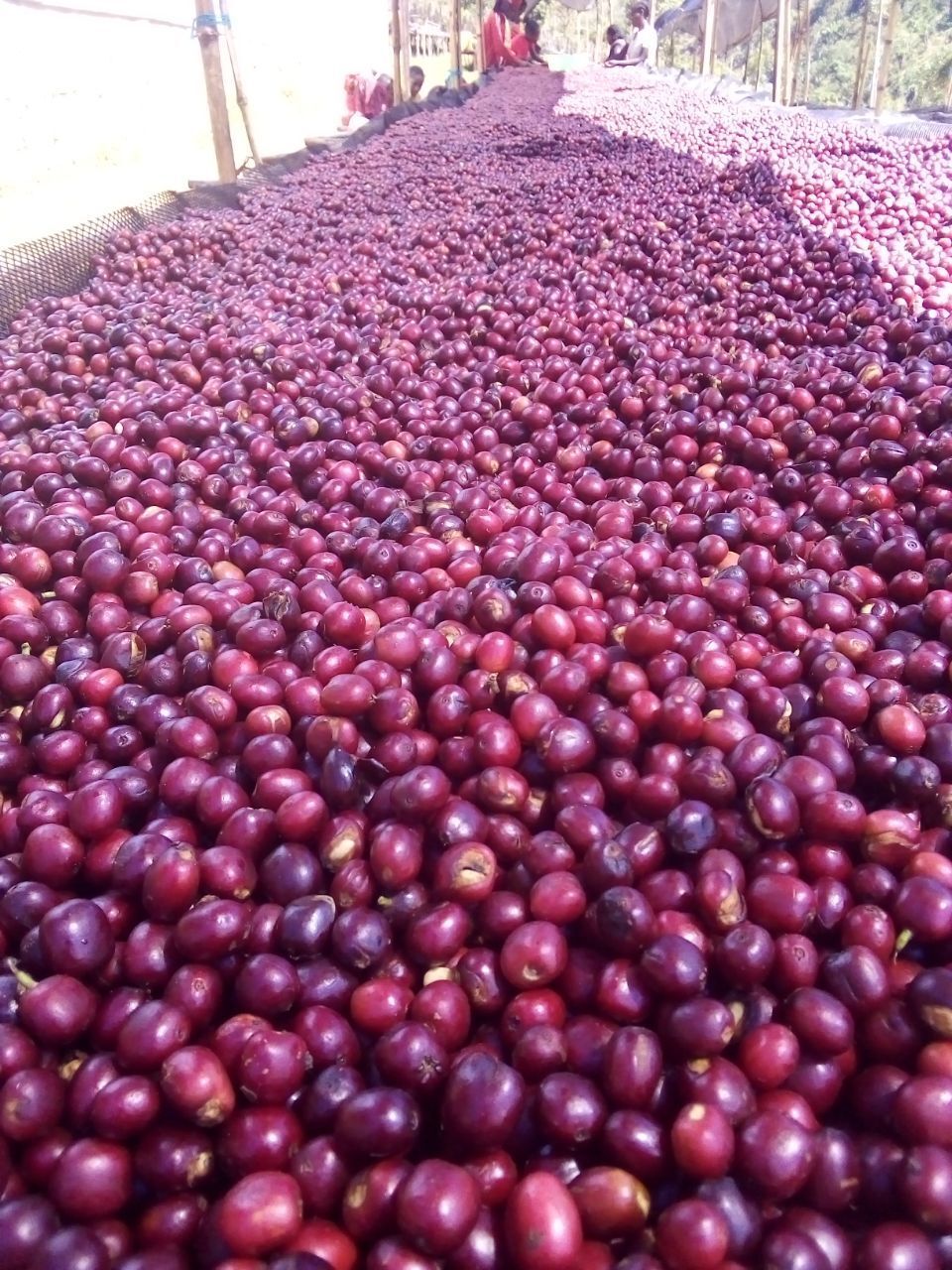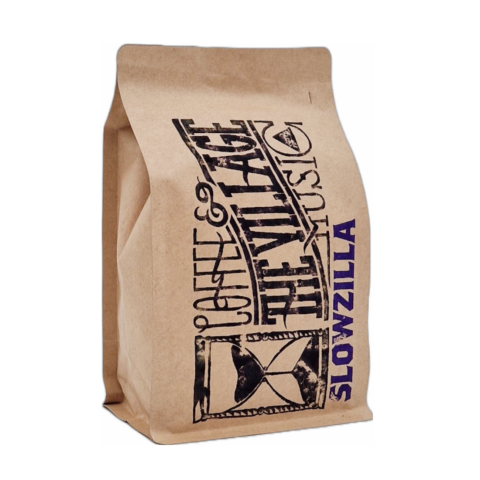Description
- Origin: Ethiopia
- Region: Bensa, Sidamo
- Washing Station: Samii
- Farmer: 800 smallholders
- Crop: 2022
- Altitude: 1950-2000m
- Variety: Local heirloom mix
- Processing: Washed
A note from our supplier, Nordic Approach:
We have known and worked with Faisel, Adam and the rest of the team of Testi Exporters for many years. Faisel Abdosh is the owner of seven washing stations as well as the owner of the export business. He was joined by his cousin Adam in 2014. Adam used to live in Texas and he moved to Ethiopia to be involved in the family’s growing business. Testi offers coffees at different quality and price levels, including the specialty coffees we source. A few of Faisel’s washing stations produce the specific profiles we are after, and they offer a wide selection of samples for cupping in our Addis lab which ensures we have access to a good selection.
Cherries undergo the usual Ethiopian style processing, being collected by hand. Afterwards they are pulped by a traditional Agaarde Discpulper. Skin and fruit pulp are removed before the machine grades the parchment in water as 1st or 2nd quality, determined by density. After a 72 hour wet fermentation coffees are washed in channels, and graded in water by density. The lower density (lower quality) will float and are removed, leaving only the denser and therefore higher quality beans which are separated as higher grade lots. Coffee is then piled up in layers which are 2cm in height and dried over a 10 day period then followed by hand sorting for 2-4 hours
After drying the coffees will be packed in jute bags and stored in the local warehouse onsite, separated by process and grade. This process helps condition the coffee and achieve a more uniform humidity. They will normally be stored 1-2 months before they are moved. In some cases the parchment will be hand-sorted in the warehouse.
After the harvest season is over the coffees are moved to warehouses and dry mills in Addis. Trucking is expensive in Ethiopia. The coffee trucks must pass a local ECX checkpoint where its contents are graded and registered as an exportable product, before it continues to Addis Ababa. The coffee will sit in parchment in a warehouse in Addis. This is when our team will go to the warehouse and collect the samples from the specific stock lots. It remains in parchment until it is contracted and the destination for shipment is confirmed.
Through our sister company Tropiq we are on the ground in Addis. We personally collect samples which we cup and grade, and measure humidity and water activity. When the specific lot is selected for purchase we register the contract with a shipping destination and approve it for milling and shipment. We are present at the dry mill during processing, grading and bagging, and we immediately take a PSS sample for approval. We generally try to get our containers stuffed in Addis at the dry mills and moved to the port and straight on a vessel in Djibouti. This way we reduce the risk of delays or mistakes at port that frequently happen when moving coffee by truck for stuffing in Djibouti.
Testi employs about twenty permanent staff members. In partnership with customers, they have built two schools in Guji and Yirgacheffe. “Most people claim to do activities that support the community, but rarely do they actually follow up in its operation and sustainable execution,” Adam said. The Testi team follow up on the schools they built and supply them with materials needed for a consistent operation. They are now planning on building water pumps to give the community access to clean drinking water.
Our coffee comes in craft paper bags which contain a plastic liner on the inside to guarantee freshness of our coffee. Please dispose properly at your local plastic trash container. The Village Coffee is roasted fresh every week, and best consumed within four weeks after roast date. Store your coffee in a dry, dark and cool place, avoid the fridge.








